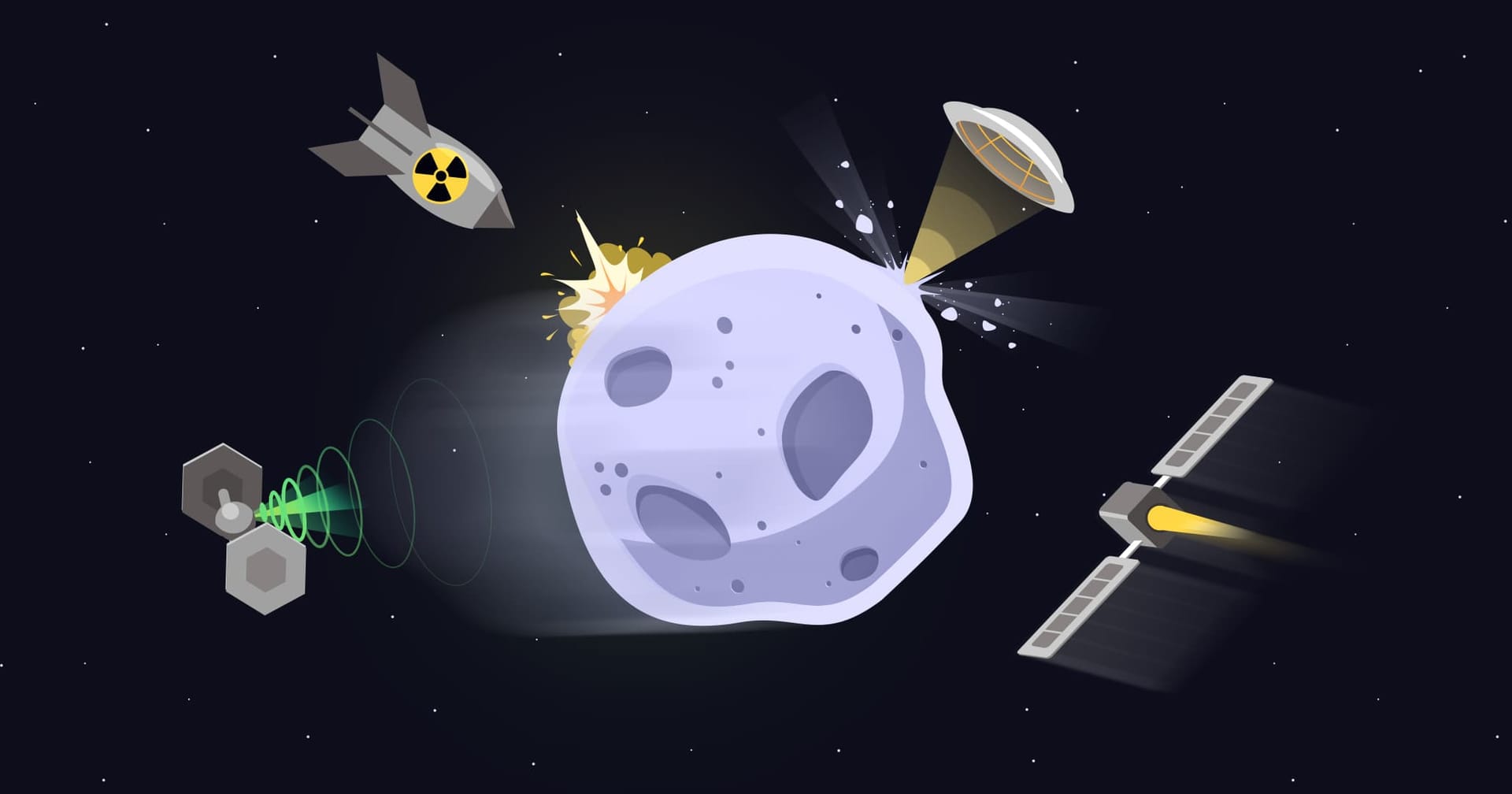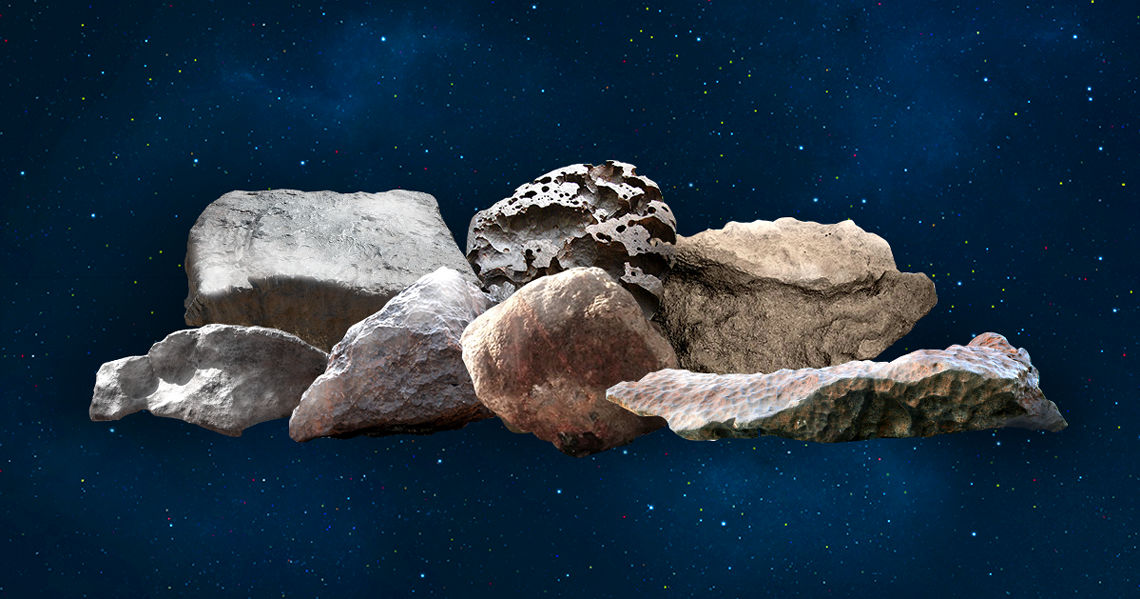Asteroid Day 2025: What Is It and How to Celebrate It?
On June 30, 2025, we’ll celebrate the 10th annual Asteroid Day! By observing it, you can raise awareness about asteroids and help protect the Earth from a serious threat. Let’s learn more about the history of the event and how you can take part in it.
Contents
- What is Asteroid Day?
- The largest asteroid impacts
- How to stop an asteroid from hitting the Earth?
- International Asteroid Day: Bottom line
What is Asteroid Day?
Asteroid Day is a global awareness campaign designed to educate people about the risks associated with asteroid impacts. The United Nations officially sanctioned it in 2016. Asteroid Day events are hosted by thousands of independent organizers worldwide.
When is Asteroid Day?
Asteroid Day is held annually on June 30. This date was chosen to commemorate the most harmful asteroid-related event in Earth’s recent history – the Siberian Tunguska event, which occurred on June 30, 1908.

Who founded Asteroid Day?
The idea was initiated by:
- Brian May, an astrophysicist and musician (lead guitarist of the rock band Queen);
- Grigorij Richters, a filmmaker who wrote and directed 51 Degrees North, the science fiction film about asteroids falling on the Earth;
- Danica Remy, President and Chief Executive of B612 Foundation, whose mission is to protect the Earth from asteroid impacts;
- Russel L. Schweickart, a research scientist, NASA astronaut, and B612’s co-founder.
In 2014, they announced the first Asteroid Day and gained widespread support, with more than 200 scientists, astronauts, and artists co-signing the Asteroid Day Declaration. In 2016, the United Nations declared it an international observance.
How to participate in Asteroid Day?
Asteroid Day events are held worldwide. You can find the offline and online events for your location using the map on the Asteroid Day website. It's better to check the website in advance: although it’s recommended to arrange an event on June 30, event organizers can pick an alternative date close to it.
-
If you happen to be in Luxembourg, you can attend the official Asteroid Day celebrations there. On June 26, join renowned astronomer Gianluca Masi for a live exploration of the night sky featuring telescope observations and captivating discussions. On June 27, the Space Lecture at Cercle Cité will bring together experts, students, and space enthusiasts for case studies, networking, and career insights. On June 28, visit the Asteroid Day Festival, where you'll enjoy interactive panels, astronaut meet-and-greets, and educational activities. Cap off the festival with the Art & Science Performance at Philharmonie Luxembourg, blending music performed by the Orchestre de Chambre de Luxembourg and animation by students from the Seoul Institute.
-
If you prefer to stay home, you can watch live broadcasts from Luxembourg on the Asteroid Day website. Both the Space Lecture and the Asteroid Day Festival will be broadcast online.
-
One more way to participate is to sign the Asteroid Day declaration, officially named the 100X Declaration. It calls for increasing the asteroid discovery rate by 100,000 (or 100x) per year within the next ten years. The Asteroid Day founders made such a declaration because the current rate of discovered asteroids with the potential to impact the Earth is too low. More than one million asteroids can possibly hit our planet; however, we have detected only about one percent of them. The declaration primarily appeals to scientists, but everyone is welcome to participate and sign it.
The largest asteroid impacts
What would happen if an asteroid hit the Earth? Our infographic shows that the destruction scale depends on an asteroid's size. Small asteroids can go unnoticed, while larger ones can wipe out a city or an entire population of the Earth. We'll describe the results of the largest asteroid impacts in Earth's history.

Tunguska: flattened 80 mln trees
The Siberian Tunguska event was a massive explosion that occurred on June 30, 1908, near the Podkamennaya Tunguska River in central Siberia, Russia. Presumably, this explosion was caused by an asteroid around 50-100 meters in diameter. The energy of this explosion is estimated to be a thousand times more powerful than the atomic bomb dropped on Hiroshima, Japan.
Chelyabinsk: exploded over residential areas
On February 15, 2013, an asteroid around 20 meters in diameter entered the Earth’s atmosphere and exploded in the sky above Chelyabinsk city, Russia. It is estimated that the energy of the explosion was 20-30 times higher than the energy of the Hiroshima atomic bomb. The airwaves busted out the windows and knocked down parts of buildings in six nearby cities. About 1,500 people were injured, mainly by the shattered glass; fortunately, no lethal outcomes were reported. The event went viral on social media and provoked a new round of studying a potential asteroid threat.
Multiple pieces of the Chelyabinsk meteorite were found, with the largest weighing about 550 kg and now displayed in a museum. While this may sound big, much larger space rocks have been found on Earth. We’ve put together a list of the top 7 largest meteorites in our infographic – take a look!

Chicxulub: took away dinosaurs
How did dinosaurs go extinct? The most popular theory is that 66 million years ago, the Earth collided with a giant asteroid (about 10 kilometers in diameter), which left the Chicxulub impact crater (about 180 kilometers in diameter and 20 kilometers in depth) in Mexico. The shock wave provoked earthquakes, tsunamis, winds exceeding 1000 km/h, and clouds of gases and dust blocking the Sun. Many dinosaurs died from the explosive force, and the others followed later. Vegetation was severely damaged due to a lack of nutrition, and large herbivores died, subsequently leading to the demise of carnivores that fed on them.
How to stop an asteroid from hitting the Earth?
Humanity is working on possible ways to do it. Earlier, we told you about NASA’s DART mission. Other solutions are also proposed, such as the slow gravity tractor, the use of solar or nuclear energy, and even spray paint. The thing is, we can’t unfold them five minutes before the collision. They all need several years of development, tests, and further deployment. The sooner we detect a dangerous asteroid, the more chances we will have to save the Earth. That’s why it's vital to observe Asteroid Day, raise awareness about asteroid impact hazards, and encourage research into this important topic.
Asteroids not only pose threats but also provide opportunities. Check out our infographic to learn about the resources that can be mined in space.

International Asteroid Day: Bottom line
Asteroid Day, celebrated annually on June 30, is a global event dedicated to raising awareness about hazardous asteroids. Established in 2014, this day commemorates the Tunguska event, the largest asteroid impact in Earth’s recent history. In 2025, official Asteroid Day activities (lectures and workshops) will be held in Luxembourg on June 26-28. You can watch live broadcasts of these events on Asteroid Day’s website. Be sure to also check the map of Asteroid Day events — maybe there is something interesting going on in your city!
To expand your knowledge about asteroids, you can also take our asteroids quiz.

